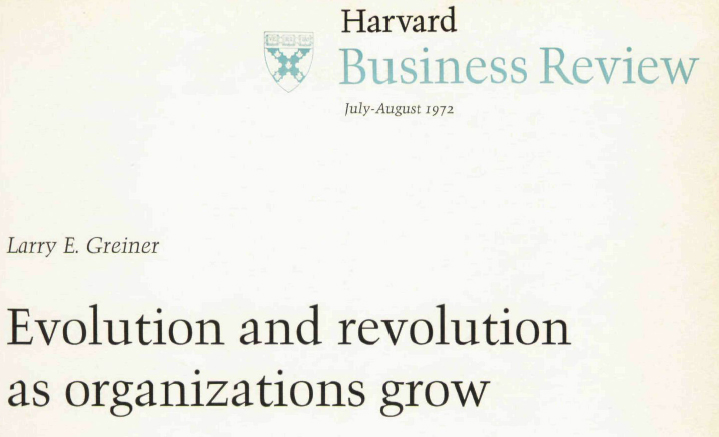Growth of start-ups is probably their biggest challenge. As you may imagine given my interest for the company, I will focus on Google in a future post, but first let me mention an article mentioned to me by my colleague Jean-Philippe M.-F. (thanks 🙂 ): Evolution and Revolution as Organizations Grow, by Larry E. Greiner. As the author writes, it is a quite generic article: “In one sense, I hope that many readers will react to my model by calling it obvious and natural for depicting the growth of an organization. To me this type of reaction is a useful test of the model’s validity.”
What is interesting for me is the first phase of company growth, called Creativity. If your start-up is in that phase or if your are helping such a one, then it should have the following features (quoted from Greiner)
– The company’s founders are usually technically or entrepreneurially oriented, and they disdain management activities; their physical and mental energies are absorbed entirely in making and selling a new product.
– Communication among employees is frequent and informal.
– Long hours of work are rewarded by modest salaries and the promise of ownership benefits.
– Control of activities comes from immediate marketplace feedback: the management acts as the customers react.
and a crisis will arise at some point, called the leadership crisis:
“As the company grows, larger production runs require knowledge about the efficiencies of manufacturing. Increased numbers of employees cannot be managed exclusively through informal communication; new employees are not motivated by an intense dedication to the product or organization. Additional capital must be secured, and new accounting procedures are needed for financial control.
Thus the founders find themselves burdened with unwanted management responsibilities. So they long for the “good old days”‘ still trying to act as they did in the past. And conflicts between the harried leaders grow more intense.
At this point a crisis of leadership occurs, which is the onset of the first revolution. Who is to lead the company out of confusion and solve the managerial problems confronting it? Quite obviously, a strong manager is needed who has the necessary knowledge and skill to introduce new business techniques. But this is easier said than done. The founders often hate to step aside even though they are probably temperamentally unsuited to be managers. So here is the first critical development choice–to locate and install a strong business manager who is acceptable to the founders and who can pull the organization together.”
More in Greiner’s paper and then my post on Google in the near future.


Pingback: Start-Up: the book » Blog Archive » The challenge of growth (2/3): Google
Pingback: Start-Up: the book » Blog Archive » The challenge of growth (3/3): views from a WEF report